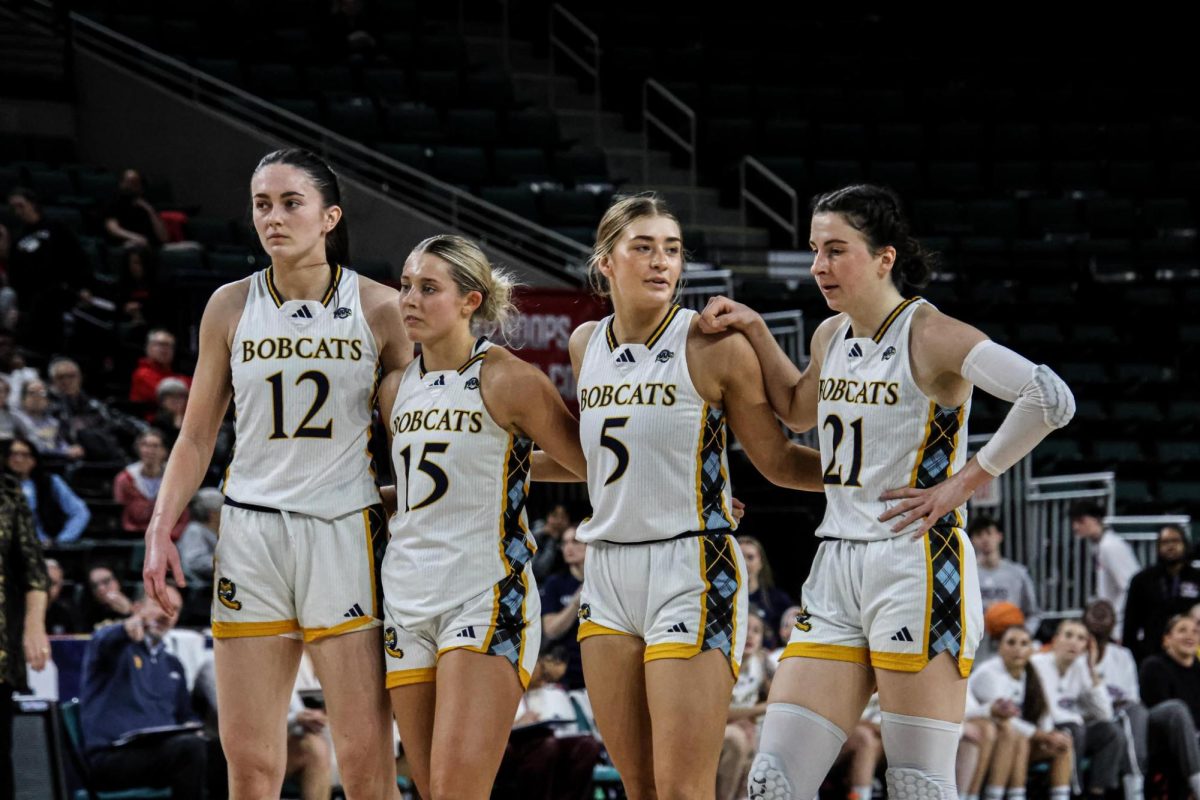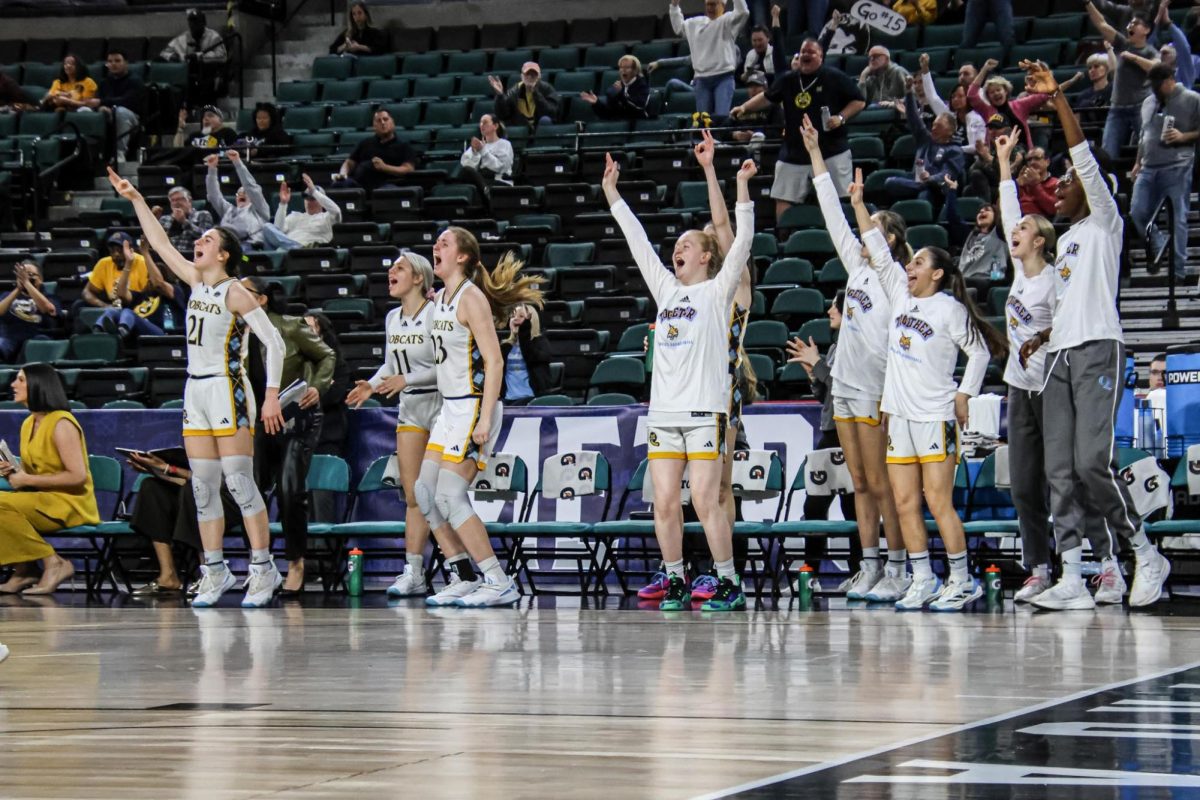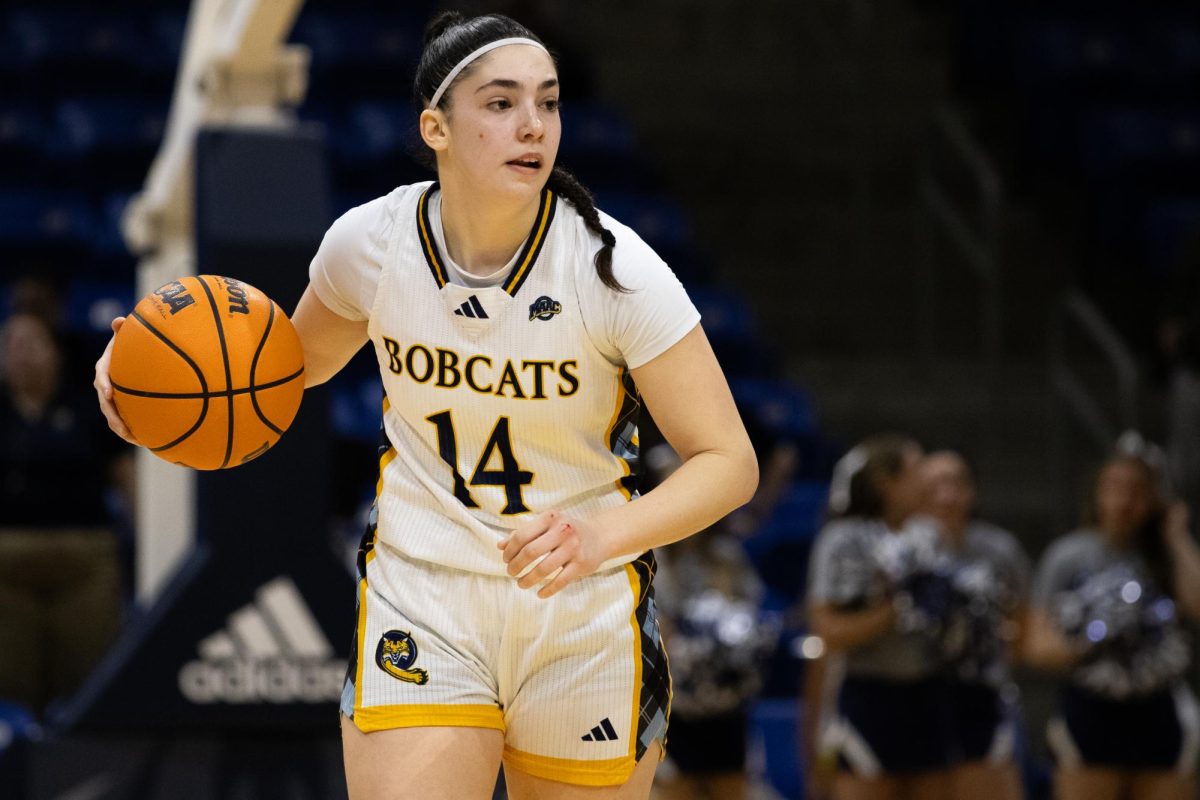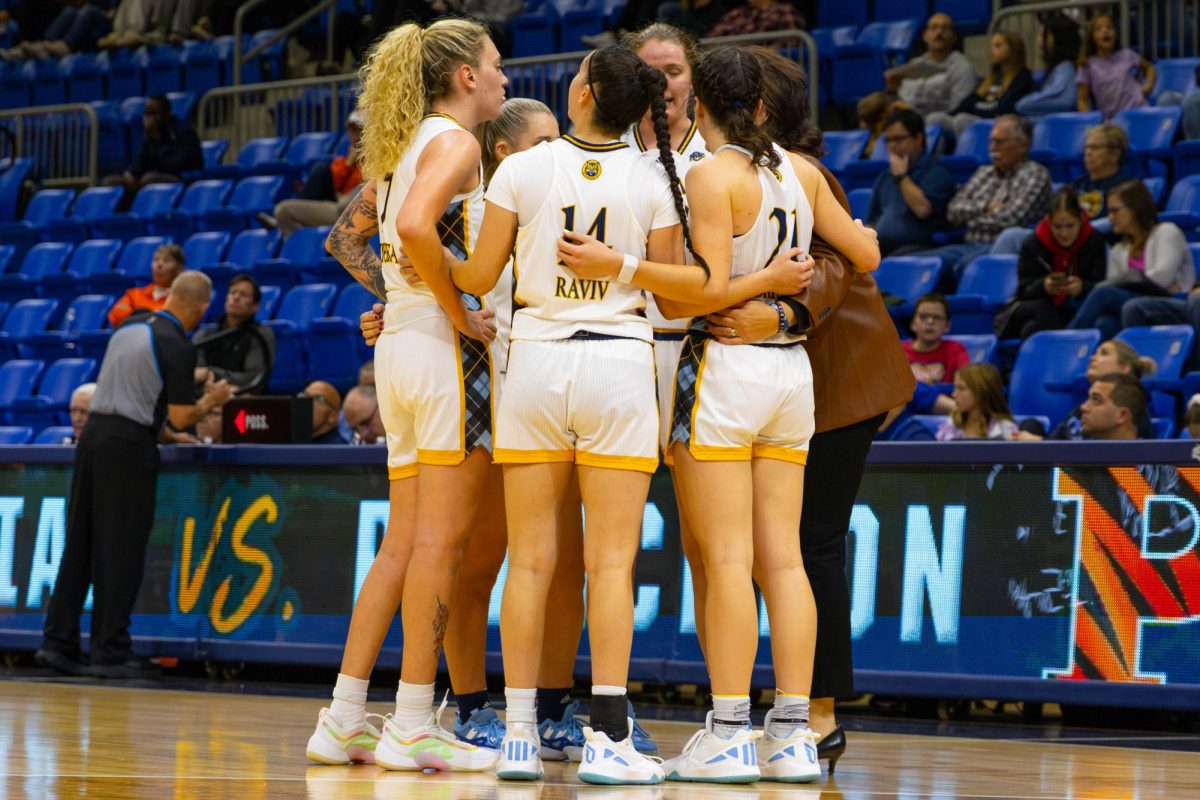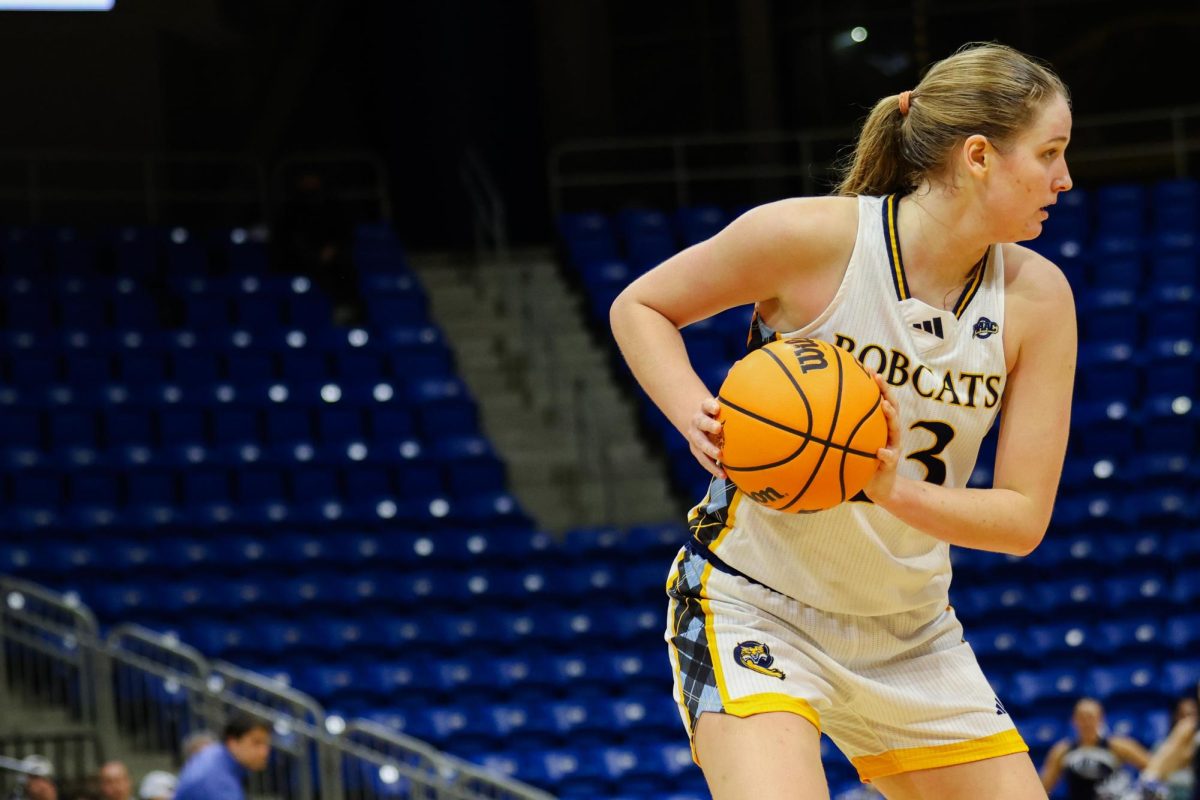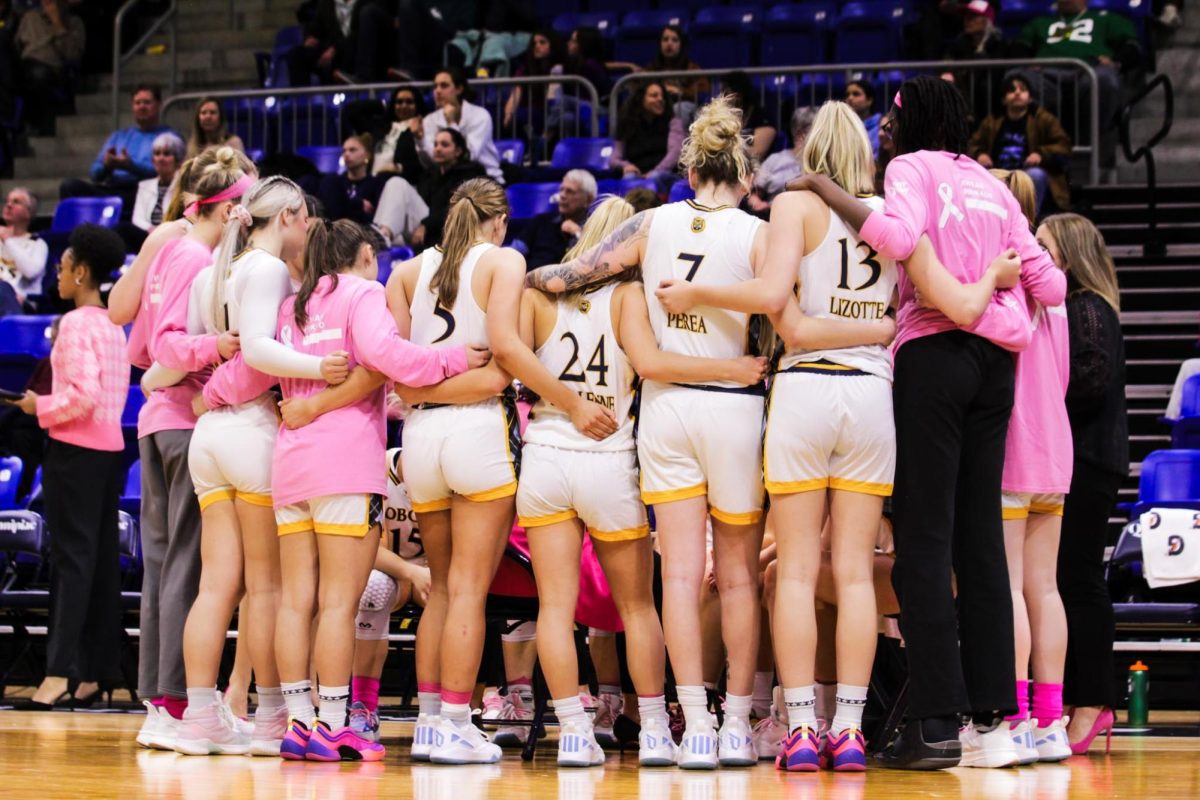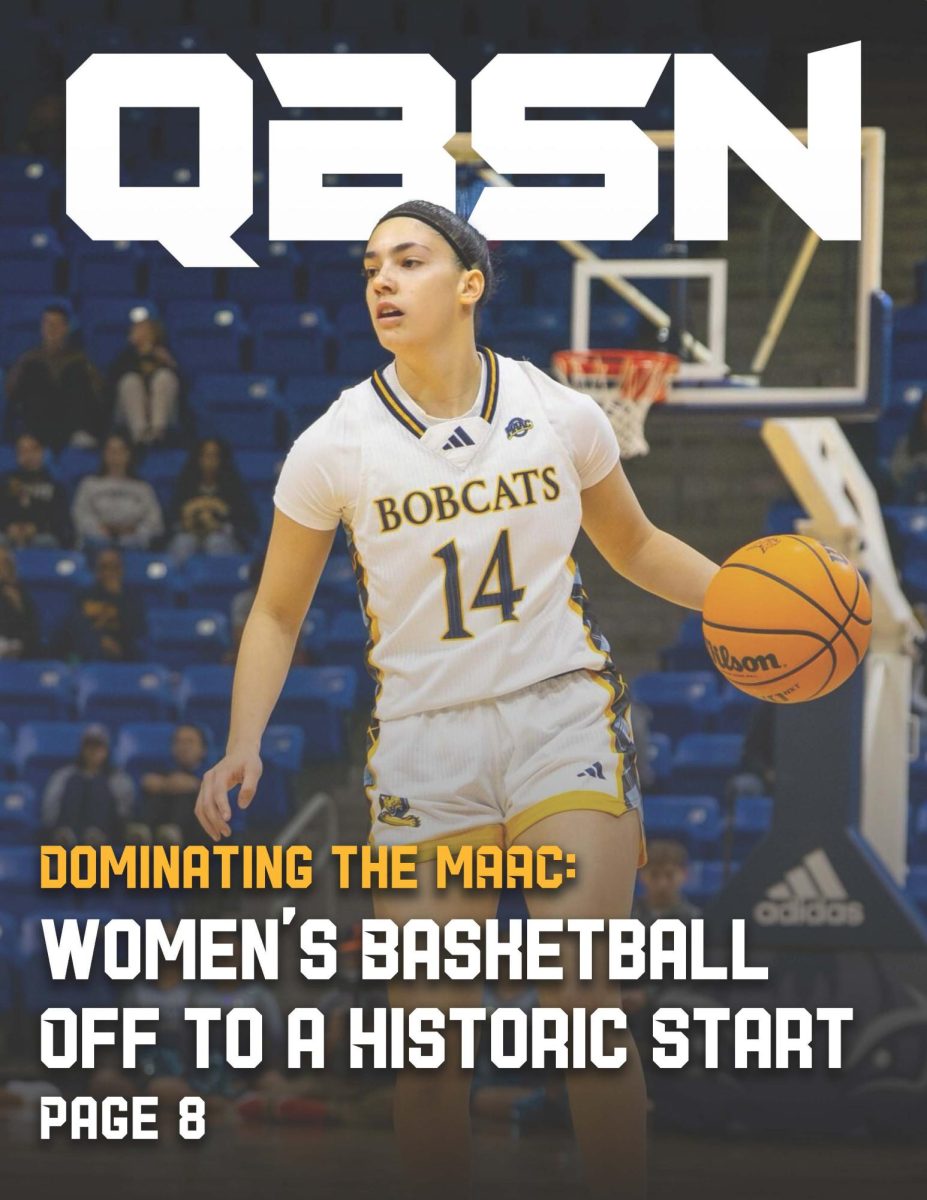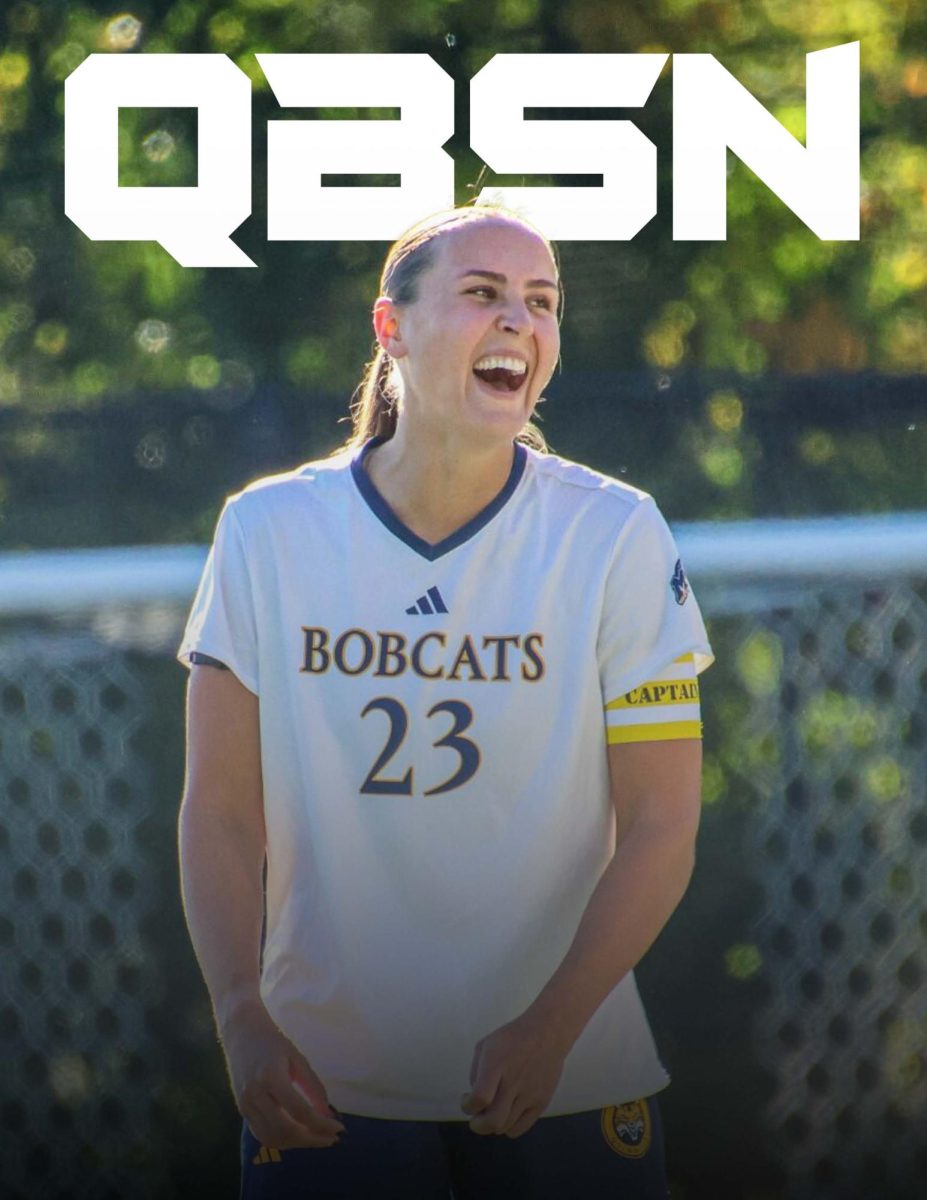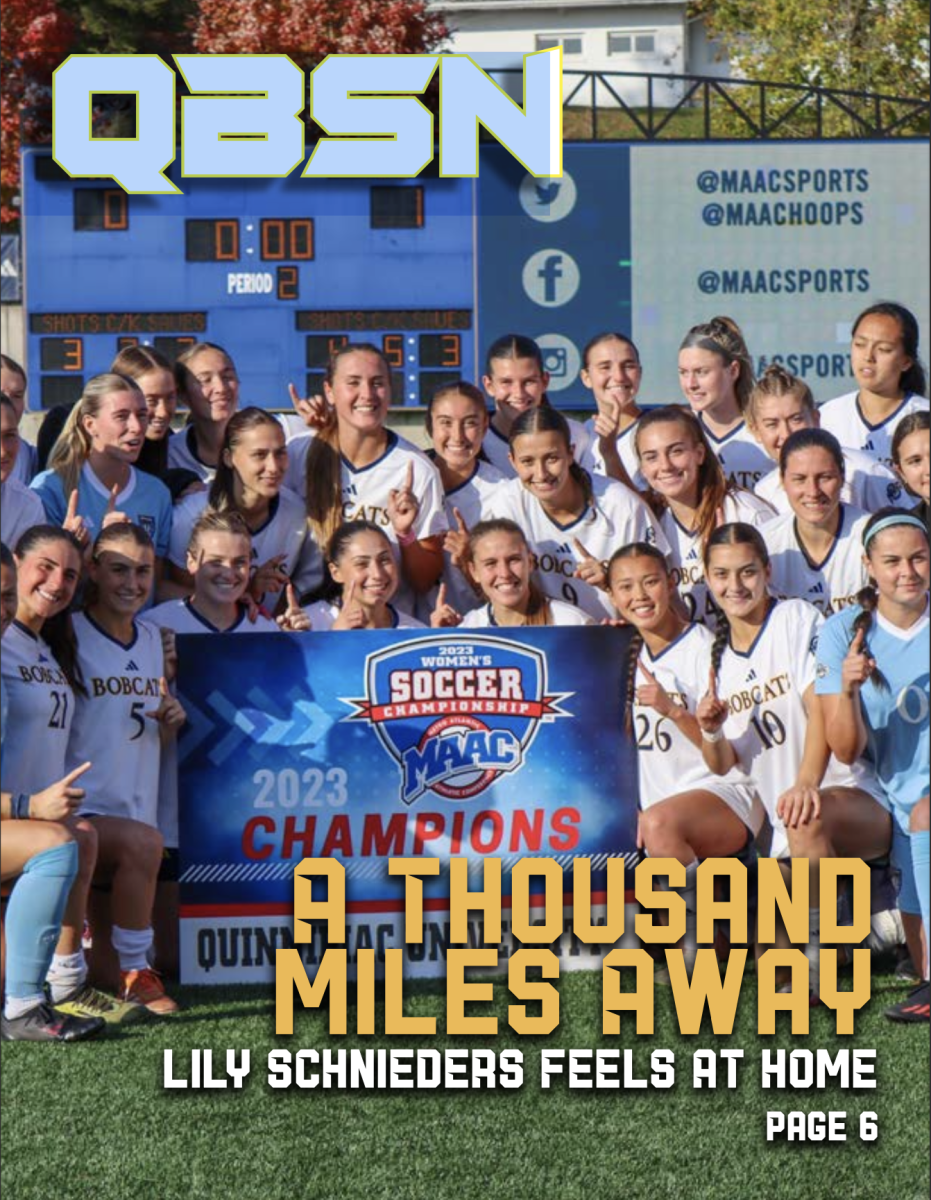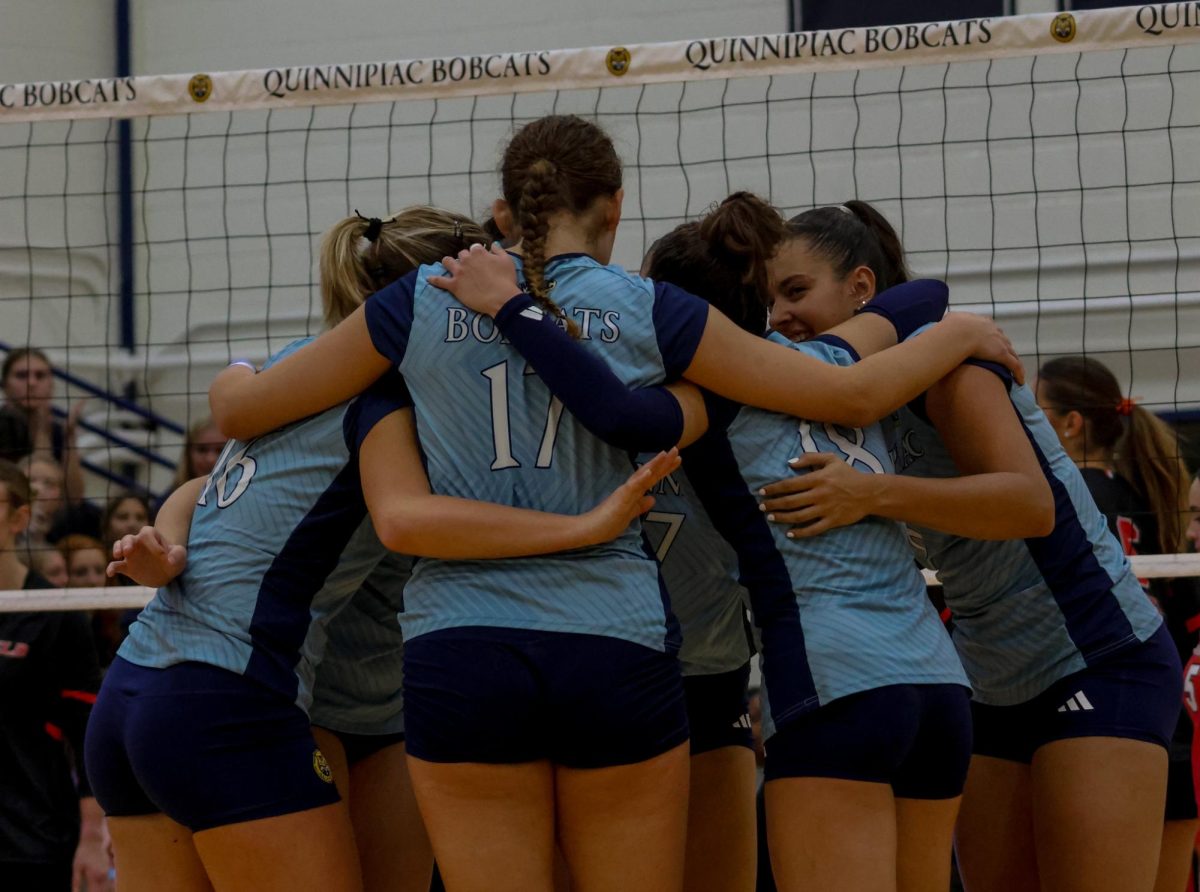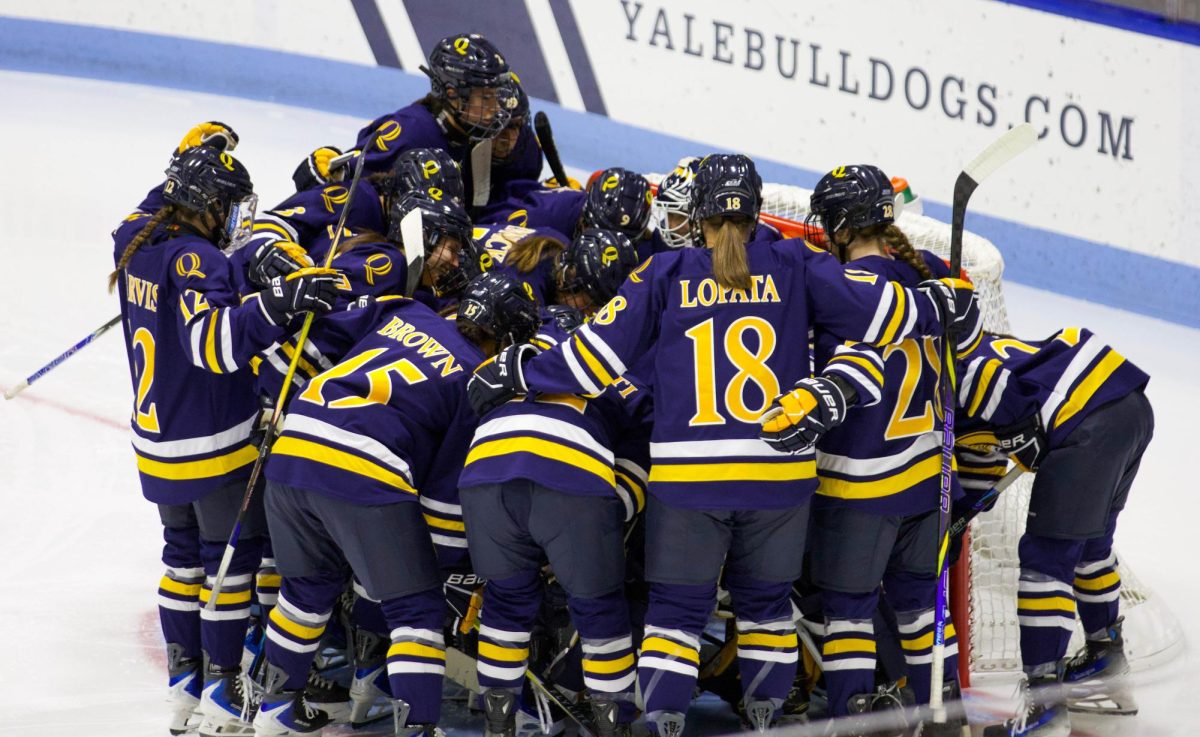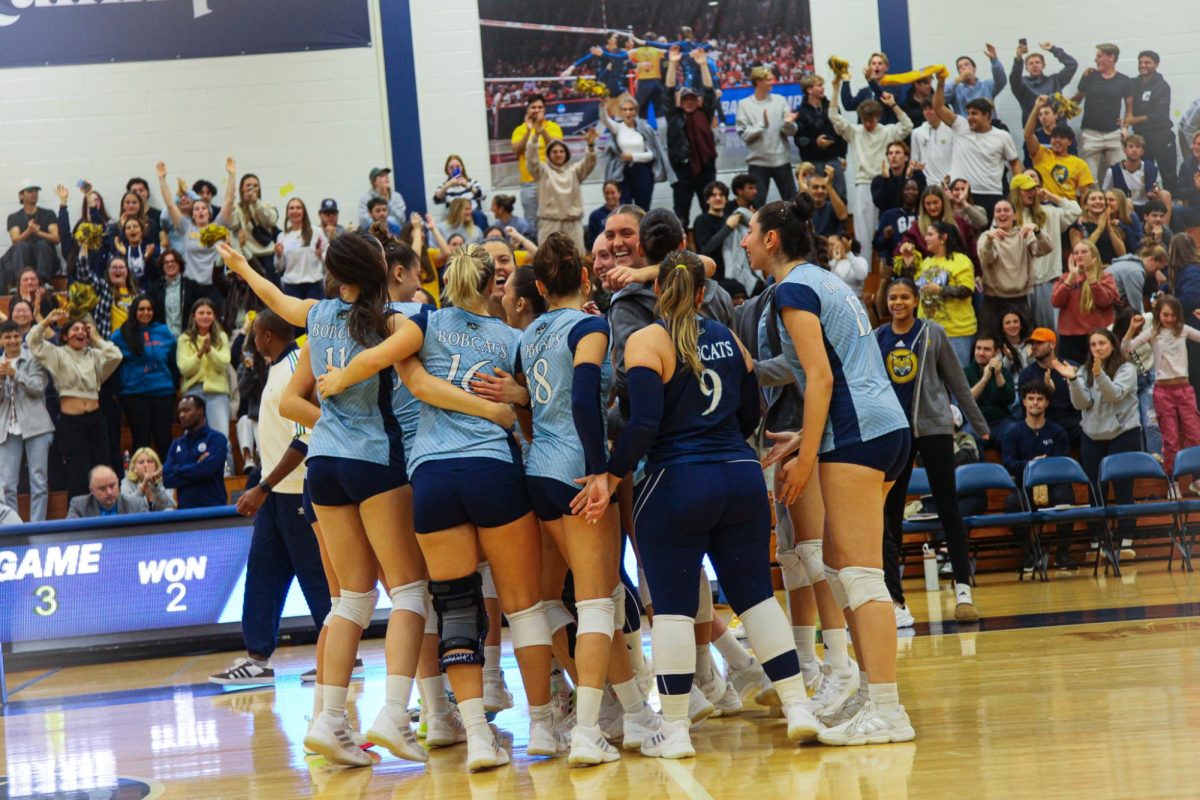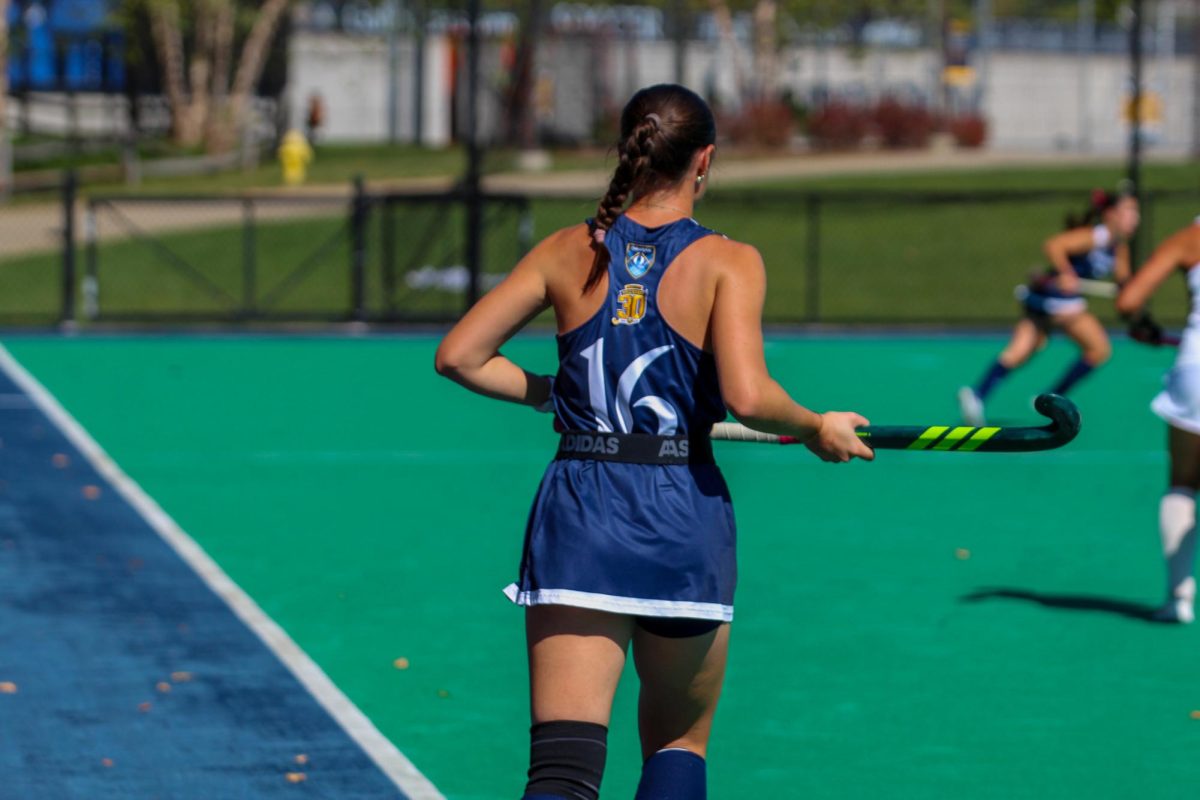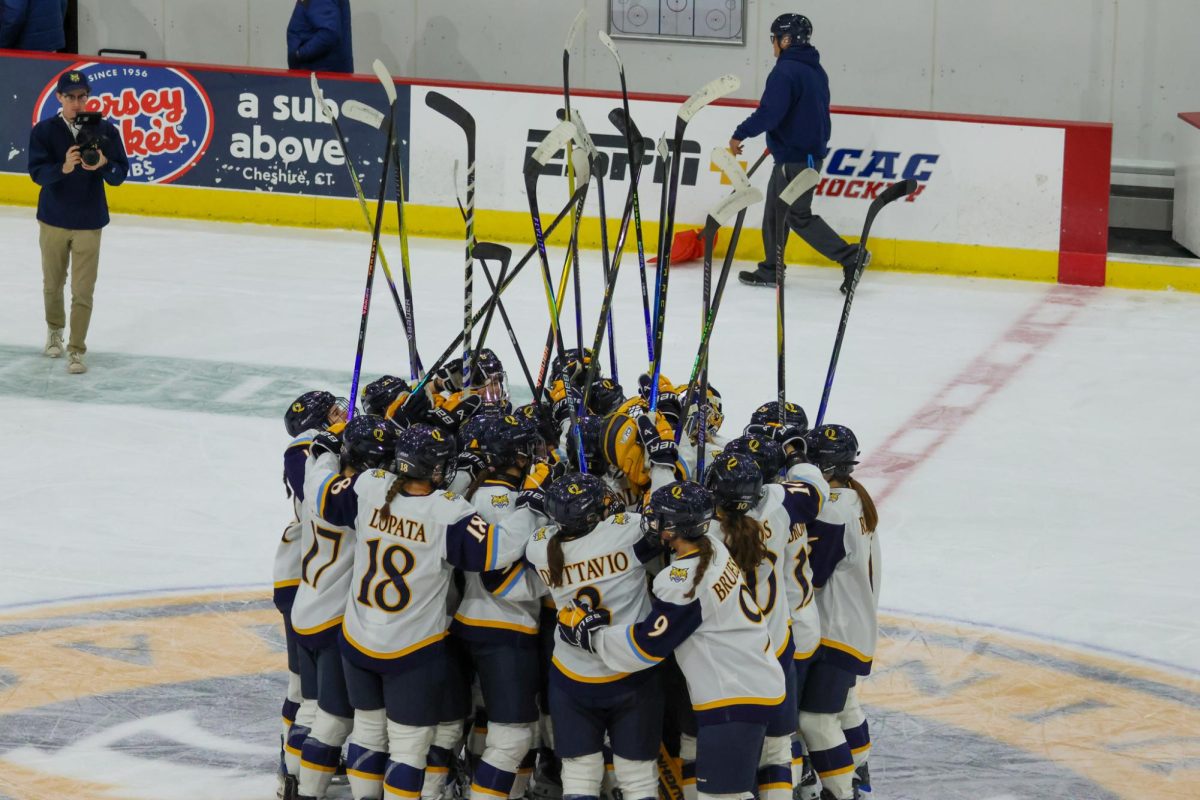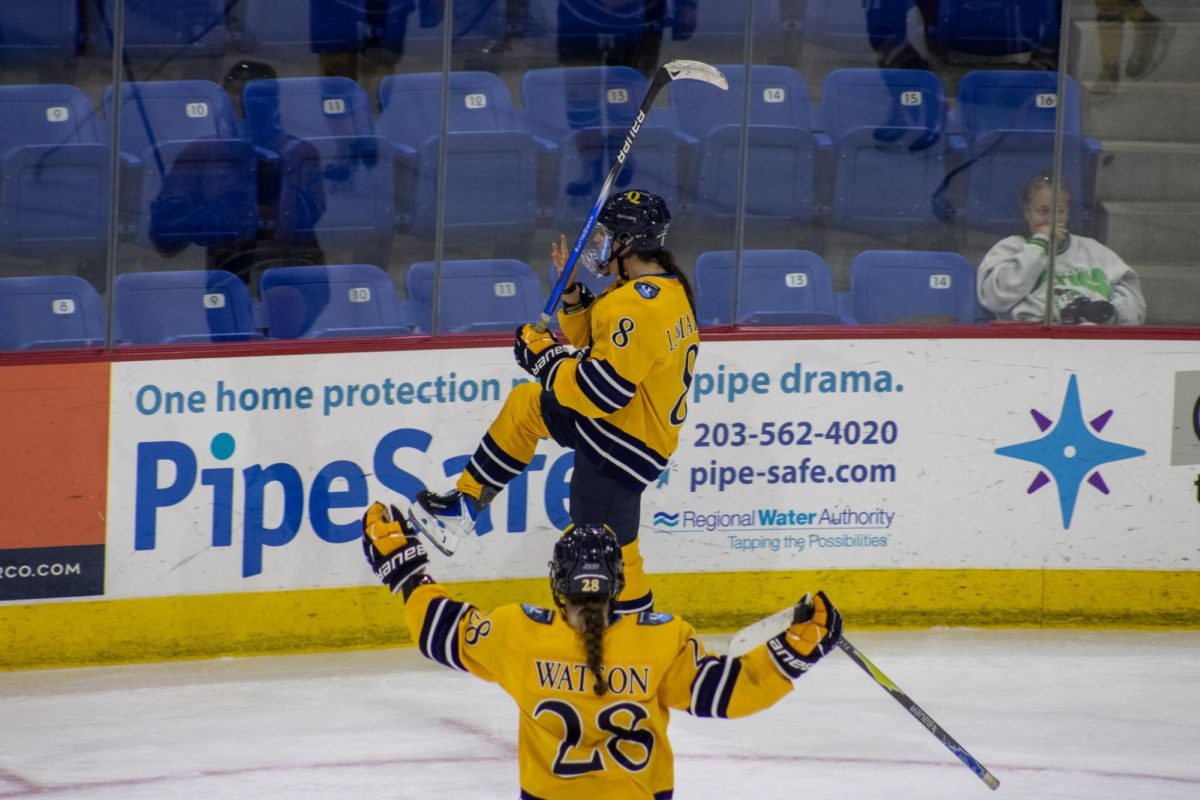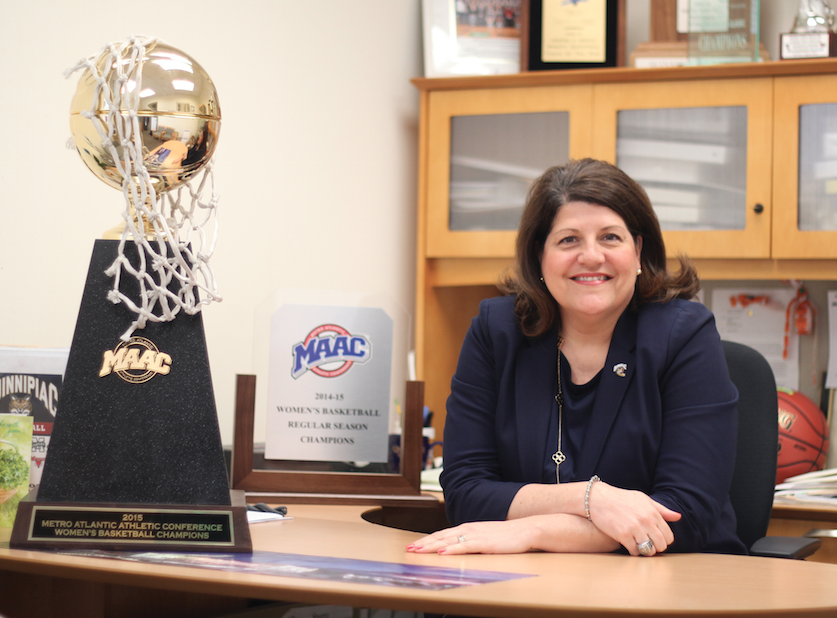
A championship trophy rests on the edge of a foldaway table. It is no ordinary trophy—far different than a participation award picked up in recreational soccer, or an Amateur Athletic Union honor from back in the day. Draped in netting and gargantuan in volume, it is an accomplishment of the collective unit, not the individual. Its presence is daunting, even if inanimate.
The clacking of two high-heeled shoes echoes throughout the dormant TD Bank Sports Center. Coming to rest next to the trophy, Tricia Fabbri places her hands on the round figure. She sighs and acknowledges its stature.
“It’s something, isn’t it?”
Fabbri has just wrapped up her 20th season as head coach of Quinnipiac’s women’s basketball program. She guided her team to its second-ever NCAA Tournament, an undefeated conference record, and even took home the Metro Atlantic Athletic Conference Coach of the Year award in the process. Two years prior on this very floor, she celebrated her first trip to the Promised Land and picked up a similar trophy in the process (it could be considered a half-brother to this one).
Right now, life at Quinnipiac is good for Tricia Fabbri. But unbeknownst to many who celebrate her coaching success, she’s the best that almost never was.
Family and competition. Two core values of Fabbri’s, and words that have become motifs during her coaching career. Her father is a lifelong sports fan, having been a talented baseball player in his day. Her mother, one of nine children, was a star in basketball. They were both teachers, so it is no surprise their daughter ended up in a similar role.
“Family is everything,” Fabbri said. “Family is having your own team. You need someone that you can lean on. The family part was, what we always did on a Sunday, you always went to your brothers football games. They always went to watch you play. You went to watch your cousins play. My aunts, my uncles, would travel to watch us play. In high school, it was ‘what’s the game?’ And the family rallied around the game, but the game wouldn’t be the same without the family in the stands.”
It all started young for her. She starred in recreational soccer, dabbled a little in rec basketball, and just enjoyed any sport that she could. She’s the oldest of four, and the only girl.
“It was fun,” she said. “I pretty much was the Queen Bee with the three brothers. We just enjoyed sports. We were fortunate to be blessed with talent and be good at sports.”
For her and her brothers, competition was the family business. And sports were their favorite customers.
At age 12, her father saw an advertisement in a local paper for an AAU team looking for players. She never took basketball all that seriously, and at more than a 45-minute drive from her home in Delran, New Jersey, she wasn’t all that interested. But it was a sport. So she pursued it.
Fast-forward to the next summer, and she was on a flight to Shreveport, Louisiana with her family and team, representing the state against some of the best in the country. Her team lost by 1 in the championship game, but a new sense of passion was ignited.
“I loved being around [the team], and being a part of a team that was so competitive and so talented really hooked me into basketball,” she said. “And obviously being able to contribute and have individual success with the team as well, ever since then I’ve never looked back and basketball has been a major love in my life.”
After playing four years at Fairfield University and a short stint as a cocktail waitress at Bally’s at the Jersey Shore, she got back into the game as a graduate assistant for the Stags. She was invited to by legendary Fairfield coach and family friend Diane Nolan. But as her on-court family grew, her personal one would as well.
Prior to a big game against Saint Peter’s, the teams left the court unceremoniously during warmups. Fabbri, confused at what was going on, was then startled by her boyfriend Paul aboard a white stallion, with his friends flanked in blue robes and crazy hats. Paul, wearing a “Beauty and the Beast” towel and Trojan helmet, was set to ask her to marry him. He had originally planned to take her to Frank Pepe’s, the famous pizzeria where they had their first date, but his sister told him he could do better. The entire gym erupted, and she can’t remember if she actually said yes or not.
“I immediately went to, ‘Oh my goodness, this is a big game, if we don’t win this, Diane is going to kill me,’” she said.
It was the competitor in her. The Stags won in the final moments of the game.
Some would say it was a fairytale for Fabbri to this point. She would start a family of her own with the birth of her daughter Carly. Then she would get the job at Quinnipiac, becoming the program’s first full-time coach as it made the switch from Division II to Division I. In the team’s first season at Division I, it finished at 9-11 in Northeast Conference play, good enough for a playoff berth.
But the second season in Division I, her fifth at the program, proved to be more of a challenge. The normally thick-skinned Fabbri, the one used to roughhousing with her brothers in sports or battling the country’s best on the court in Shreveport, would show some vulnerability.
On Dec. 4, 2000, the Bobcats hosted the Pirates of Seton Hall, and were off to an early lead. But in front of family and friends at Burt Kahn Court, her team would relent, and Seton Hall would squeak away with a 63-58 win. The loss was one of the toughest of her career.
“After five years, recently married, two young kids, slowly but surely getting full-time assistants not totally there, I really doubted, ‘Can this be done? Can I lead this program?’”
With that, she made her way to Quinnipiac Director of Athletics Jack McDonald’s office. Tears in her eyes, she told him she wanted out. Tricia Fabbri, the woman who would become known for her plethora of accolades, trophies and postseason successes years later, wanted to quit.
“She goes, ‘Jack, I can’t handle this. I’m sorry I’m disappointing you and John Lahey. I think I want to resign,’” McDonald said. “I said, ‘Trish, get out of my office and come back to see me Monday. Get out. I’m going to pretend you never said that.’”
They did meet Monday. She decided to stay.
“I think he saw someone who was really driven and competitive and had seen strides in the program, and that this was just a tough stretch of a year after pinning a little expectation,” she said. “He saw in me what I couldn’t see at the time. That someone who was the right person to continue to lead and build a really good program here.”
And build she did. As her program began to establish a reputation in the realm of mid-major hoops, the recruits began to take notice.
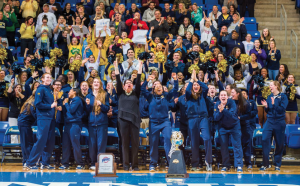
The wins began piling up. The postseason tournaments did too, including four in a row from 2011-12 through 2014-15. Two NCAA Tournament appearances later, and even the national media was finally starting to learn how to pronounce “Kwin-uh-pee-ack.” While it may have been the physical play on the court that ultimately led to these achievements, Fabbri did it her way with her commitment to family, competition and teamwork.
“The family aspect is really big,” former point guard Gillian “Boo” Abshire said. “We call each other sisters and we don’t just call each other that, we really mean it. We’re always there for each other. And I really believe that starts with Coach Fabbri.”
Even after playing her final game, the coach has continued to look after her former player like a daughter.
“Having that person there to just make sure you’re OK, she’s just unbelievable,” Abshire said. “She’ll be at my wedding, she’ll be in my life forever. I’m just really glad that I came here and played for Coach Fabbri.”
After all, family is having your own team. But no one person is above that team.
“It’s just a fabric of what coaching and coaching a team sport does,” Fabbri said. “You can’t do it one person when you’re allowed to play five at a time. Individual does not exist in the team game of basketball. You need great individuals to make the team really successful.”
But the seasoned coach remains unique in that even with her emphasis on being close-knit and unified, she still is among the best. Whether it was picking up from watching her brothers compete in football for high institutions like Penn State and Rutgers, or scoring the game-winning goal for the red team in rec soccer, competition has and remains to be her driving force.
“She’s a successful competitor,” McDonald said. “She certainly can win. But she doesn’t do it at the expense of rules, or academics or budgets. She does it the right way. That’s a really joy to see a coach that does it the right way. We know many, many athletes in many, many sports that do it the right way. We also know there’s a lot of athletes that don’t do it the right way, and there’s a lot of coaches that are rumored to work in the grey area. Trish does not. She never has, and probably never will, nor does she have to. She’s above having to worry about cutting corners to be successful.”
Now, Fabbri sits in the front row of blue plastic seats just behind the baseline she has seen her team close so many games late on. She stares at the NCAA Tournament banner across the court, which dwarfs her impressive six-foot frame. Currently featuring just the year 2013, it will need to be re-stitched before the start of next season.
She says her goal is to bring Quinnipiac to the Sweet 16, something that would really solidify the school on the national scene. She looks once more at the banner, tapping her fingernails—which feature the school logo on them—on the armrest. Everyone knows if she wanted to, she could go to a larger program with the success she has had. But the same person who nearly once left for different reasons she says she “absolutely” won’t now.
Why not?
A little family called “Quinnipiac.”



